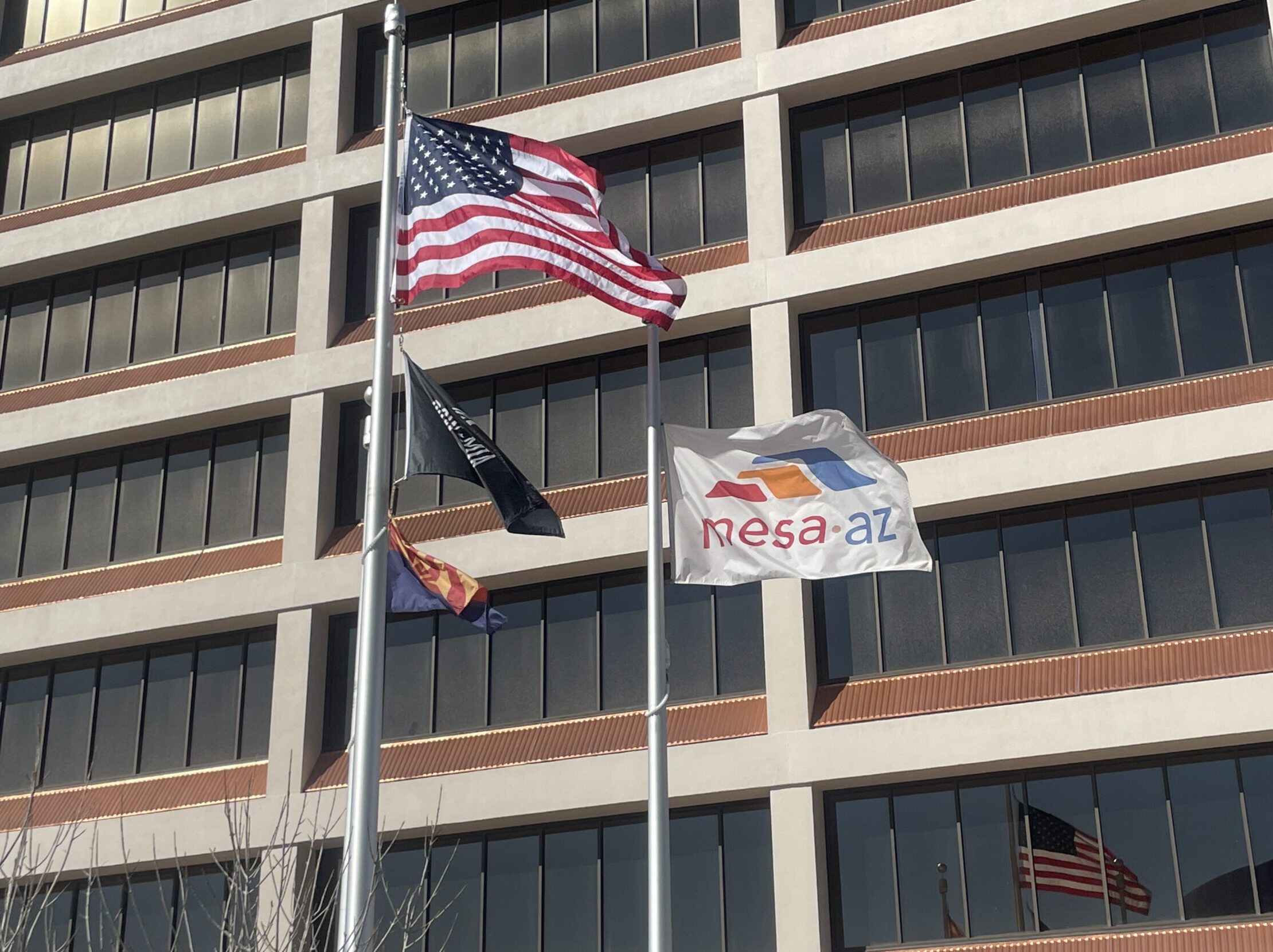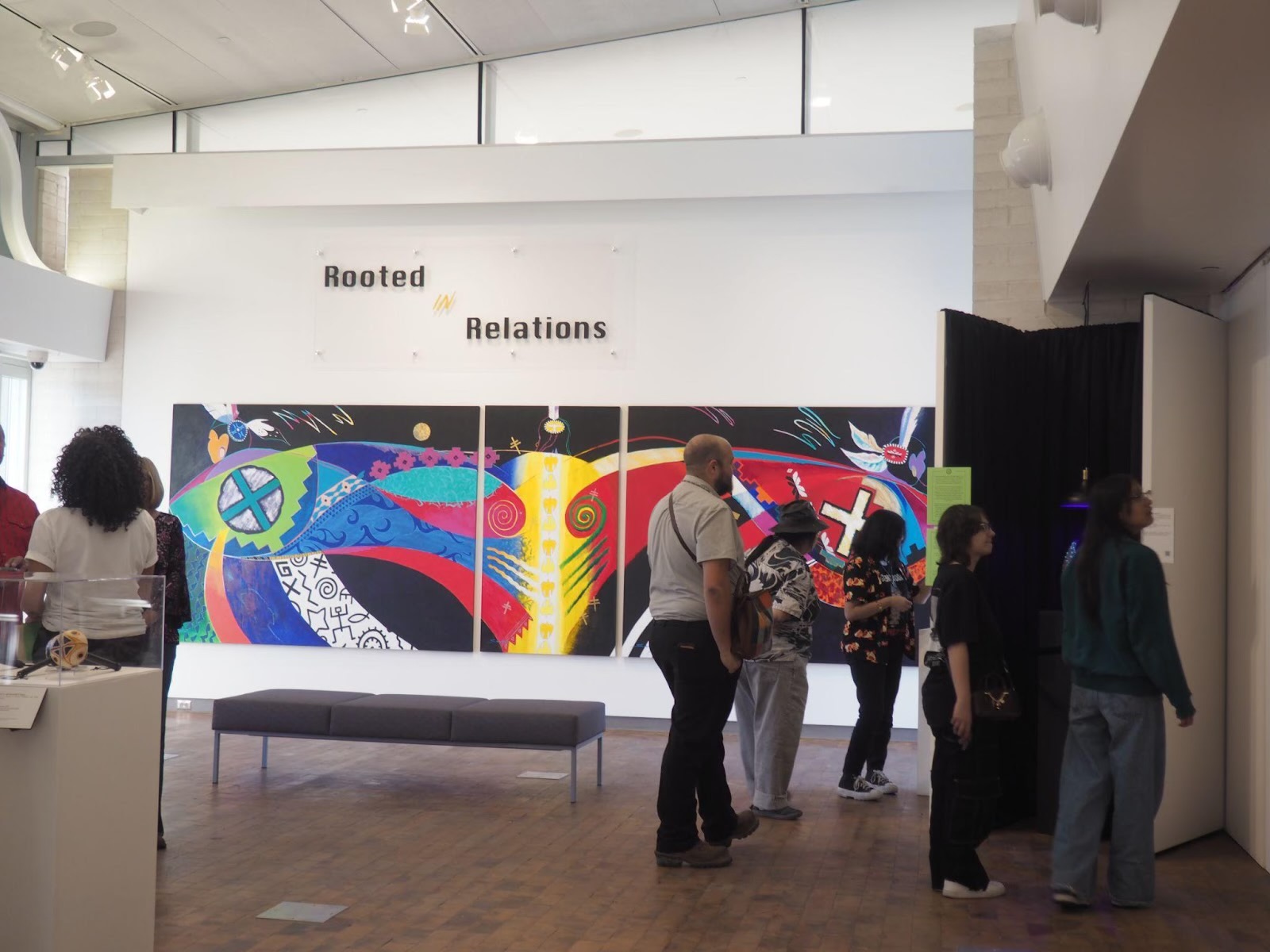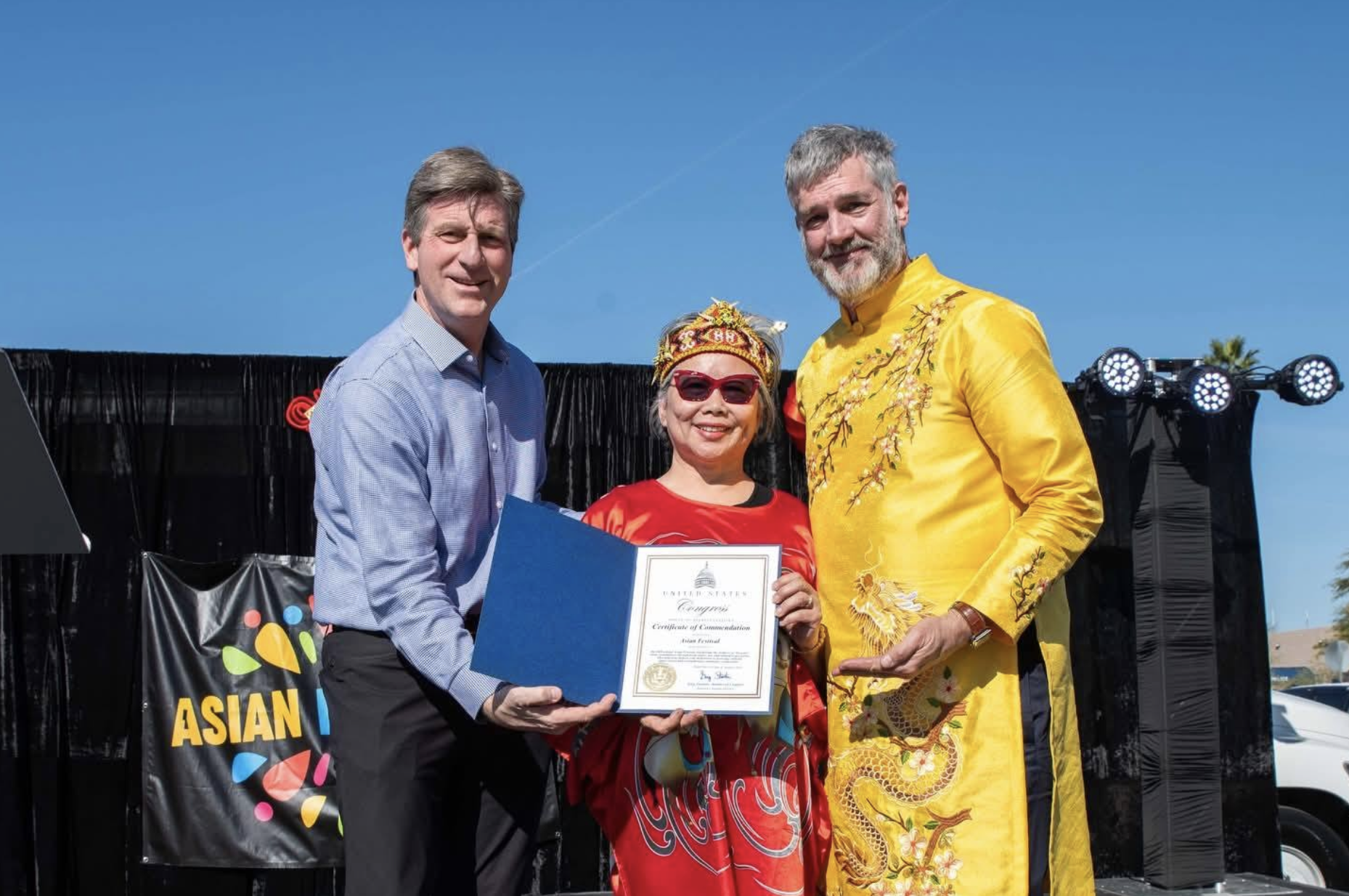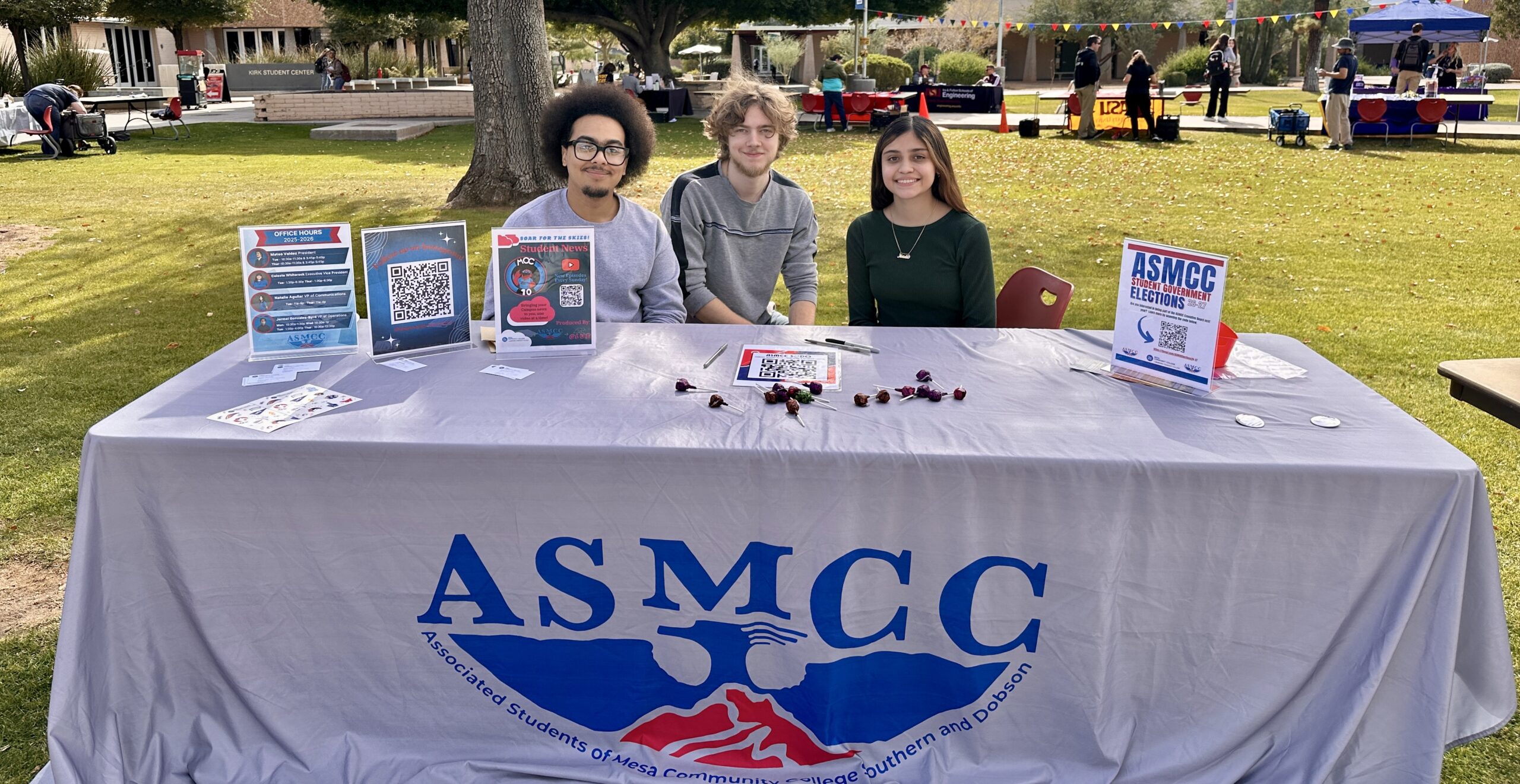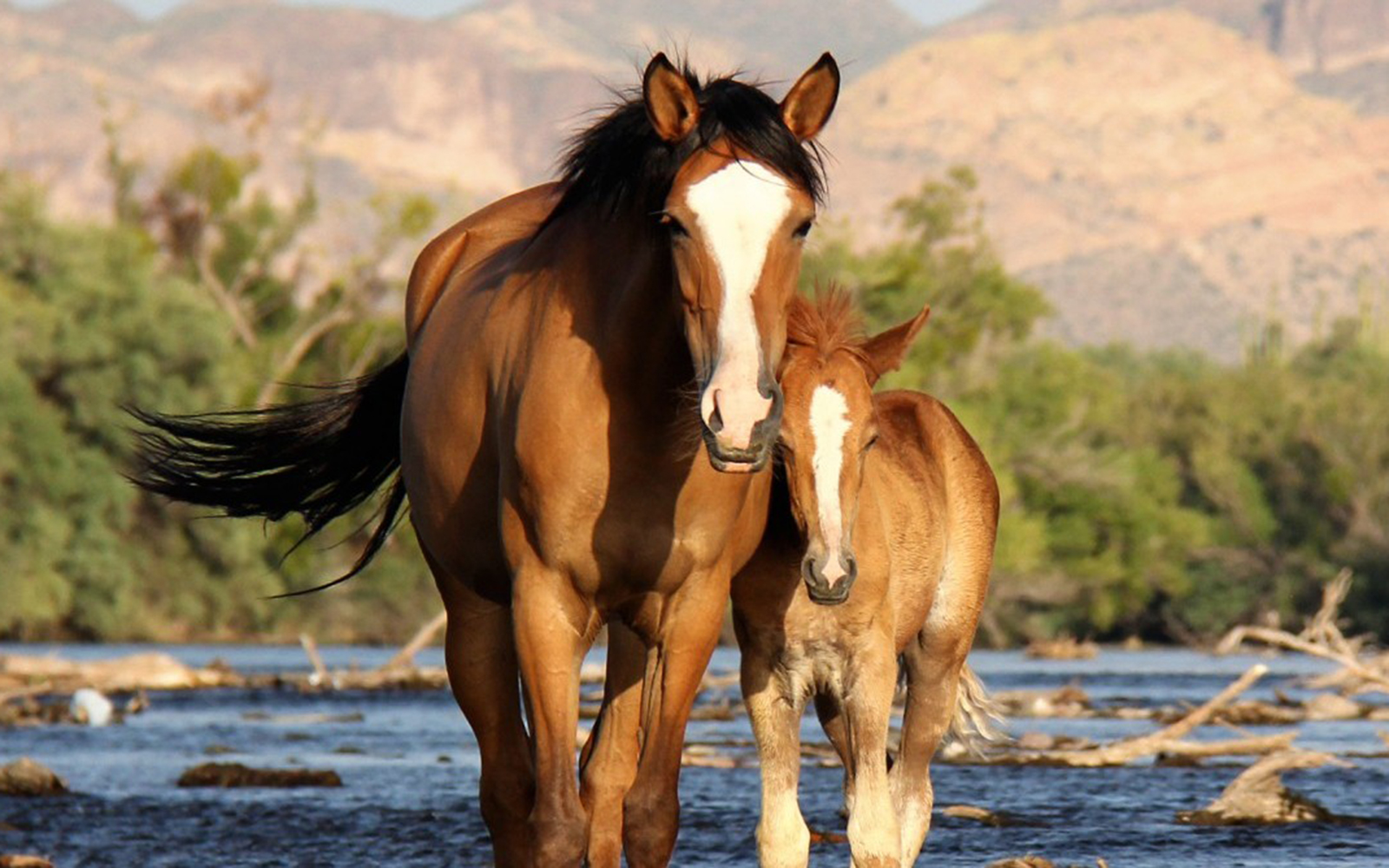Salt River Wild Horse nonprofit gains in fertility program, loses donations
The Salt River Wild Horse Management Group (SRWHMG) has had an eventful year. The successful results of a darted Porcine Zona Pellucida (PZP) fertility control program were gathered for the first time in 2020 while SRWHMG also experienced 30-40% drop in donations during the coronavirus.
Every cent of donations for the nonprofit go toward their feeding, rescuing, fencing, and birth control programs.
“Humane birth control is the solution to roundups,” said founder and President of SRWHMG, Simone Netherlands. PZP is safe for mares, doesn’t affect their hormones and is safe for predators in case the mare dies. Certified darters administer the darts from 20 yards away. The dart releases 10 to 13 seconds after PZP has been injected into the muscle.
“We would’ve had 130 babies this year, and we only had 15,” Netherlands said.
The success of SRWHMG’s fertility program is cut short by the economic turmoil caused by the coronavirus pandemic. It lost approximately 30% of its donations during the pandemic, significantly decreasing the money going to the horses.
“We have no overhead, no offices,” said Netherlands. “[The money] goes directly into our programs.”
In the last couple of weeks, SRWHMG has picked up four domestic horses abandoned near Tonto National Forest and brought them into its horse rescue. Photos on the group’s Facebook page show mares so emaciated that the bones of their ribcage press against their pelt.
Then June 2020 brought near disaster to SRWHMG. The Bush Fire ravaged approximately 186,000 acres of the Tonto National Forest, killing much-needed vegetation that the horses eat and which still hasn’t grown back due to a dry monsoon season.
“Without us feeding them–we have several feeding stations–the horses would be very skinny right now,” explained Netherlands, adding that the fire almost destroyed their rescue property.
“The fire came right to the edge of our property. It was very, very scary,” said Netherlands. “We were ready to evacuate. We had half of the horses in the trailer already, but then luckily, it subsided.”
Netherlands said SRWHMG is planning on multiple donation campaigns for the upcoming months to raise funds to assist their programs, all of which are paid solely by citizen donation. Since 2014, SRWHMG has been an official 501(c)(3), a write-off for taxpayers. They began their work in 2010 when volunteers dedicated hours collecting data to save wild horses within the Tonto National Forest.
“We noticed that the Forest Service had an intent to get rid of the Salt River wild horses,” said Netherlands. “We collected all the photographers and people who loved the horses and started a software application where we logged and recorded and scientifically noted every change within the herd.”
This full database became instrumental when the Forest Service attempted to round up the horses in 2015. The big roundup would’ve included helicopters and horseback riders intent on keeping the horses in holding pens to later sell them at public auction, where kill buyers would purchase them and bring them to slaughterhouses, according to Netherlands. After volunteers and concerned citizens sent over 65,000 emails to the Forest Service, alerted the media and lobbied for the horses’ protection, the Forest Service retracted.
“Honestly, if people just paid five dollars a month, it would be easier to take care of them,” said Netherlands. “A lot of donations are going to other good causes, of course, to COVID, and people who’re hungry, but it makes people sometimes forget there are animals who need their support too.”
The SRWHMG manages the wild horses under State Law ARS 3-1491 under the Arizona Department of Agriculture, according to their website. Readers interested in donating to the group can donate at this link: https://saltriverwildhorsemanagementgroup.org/donate/.
